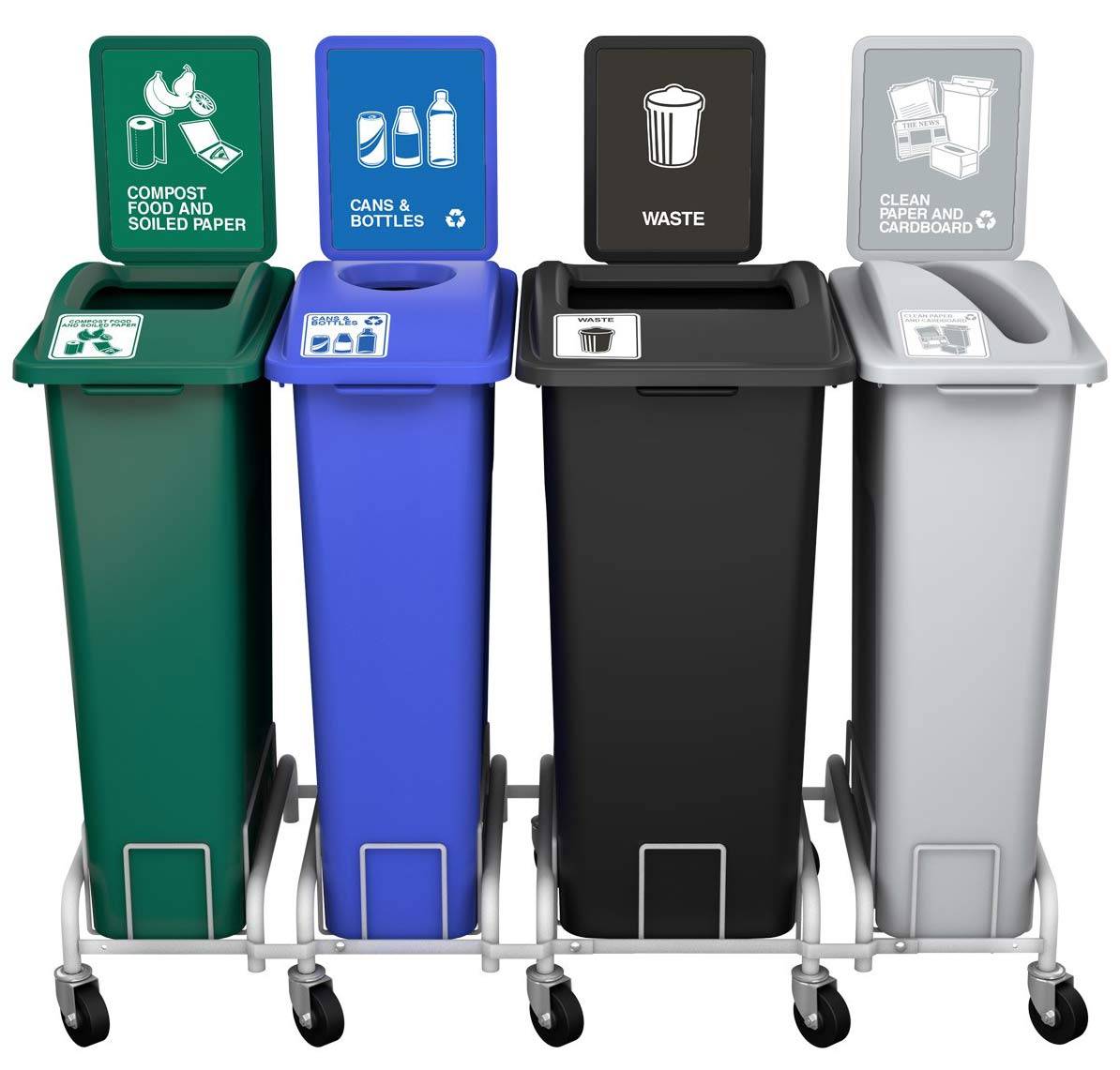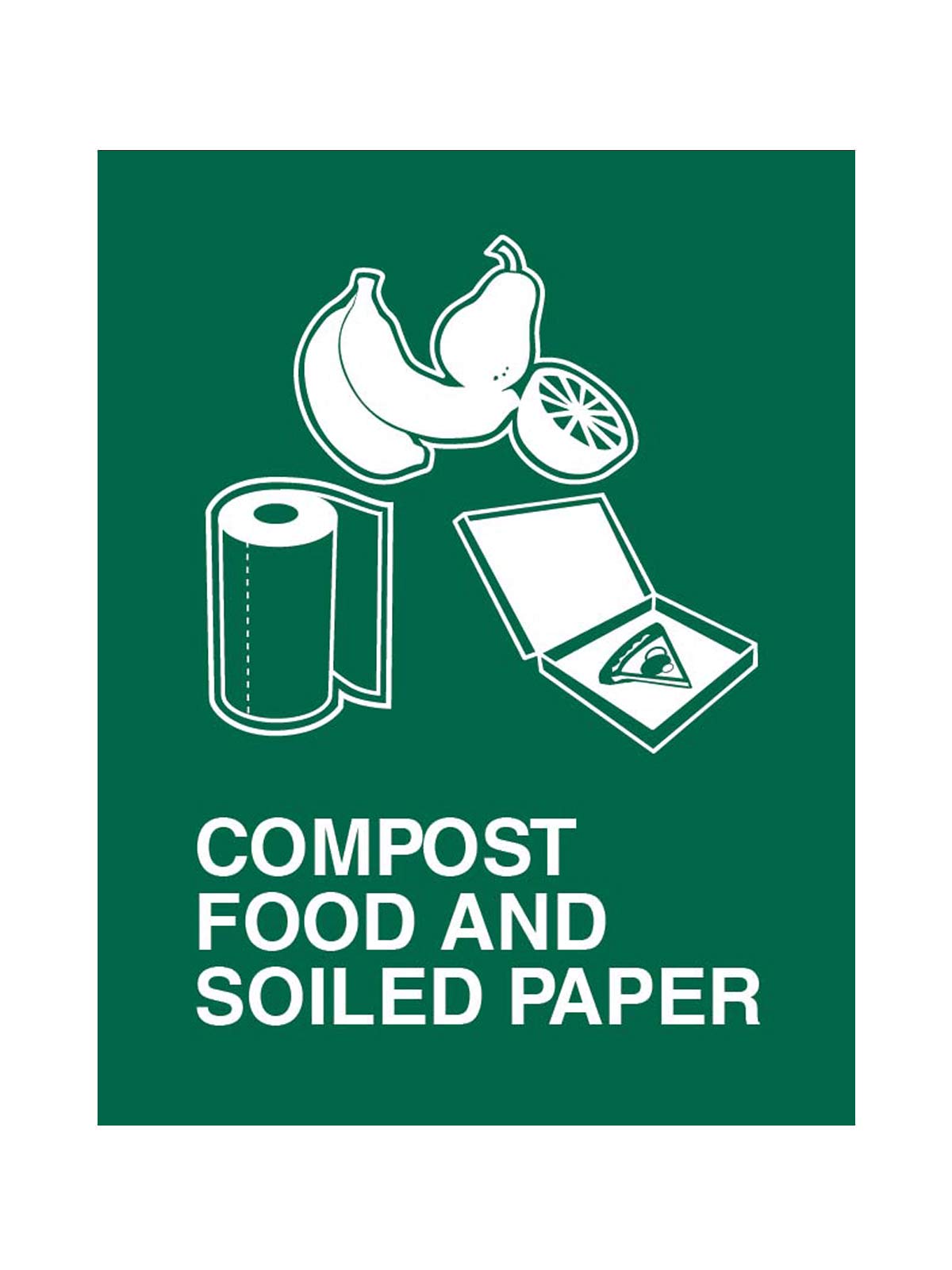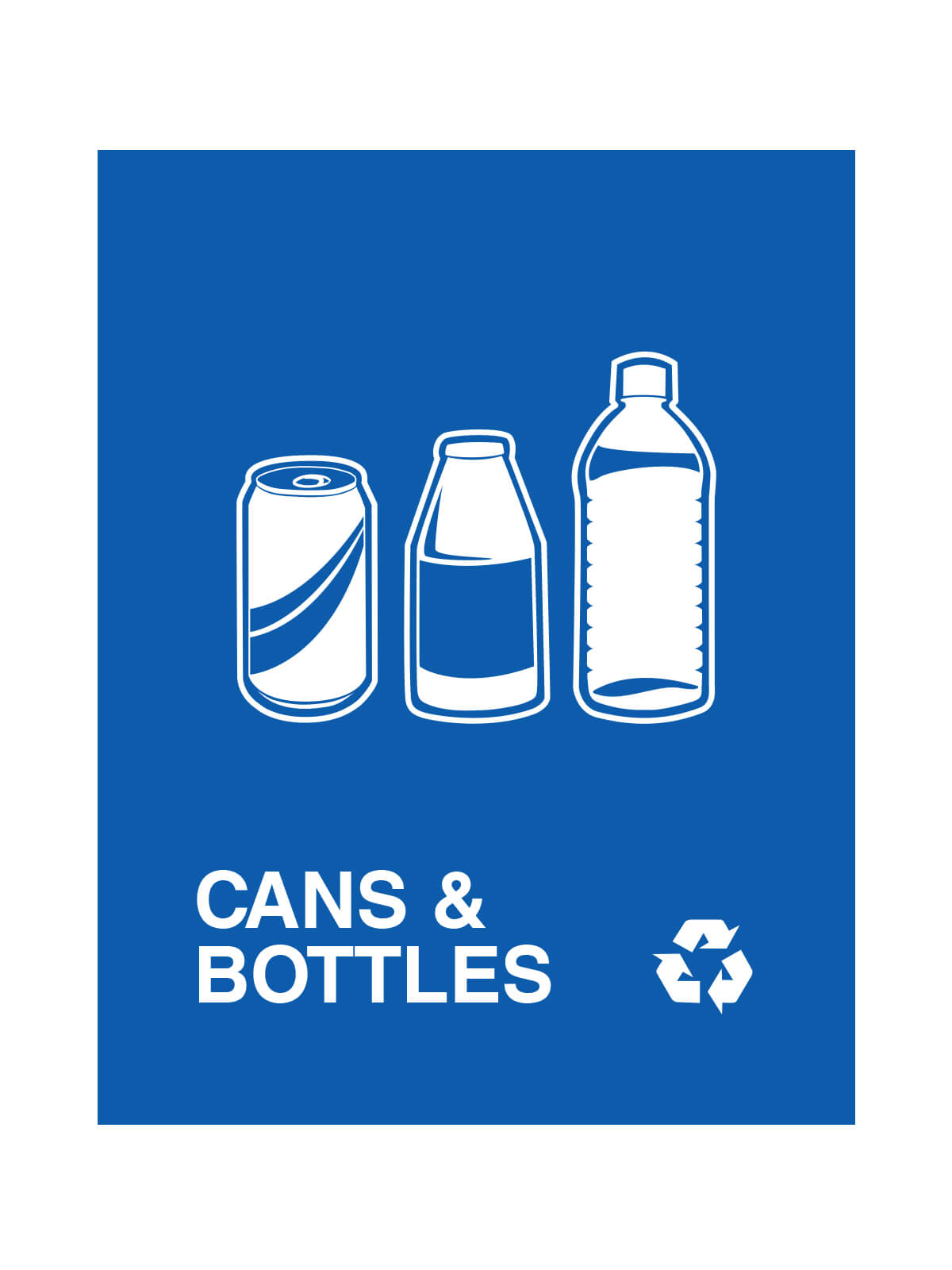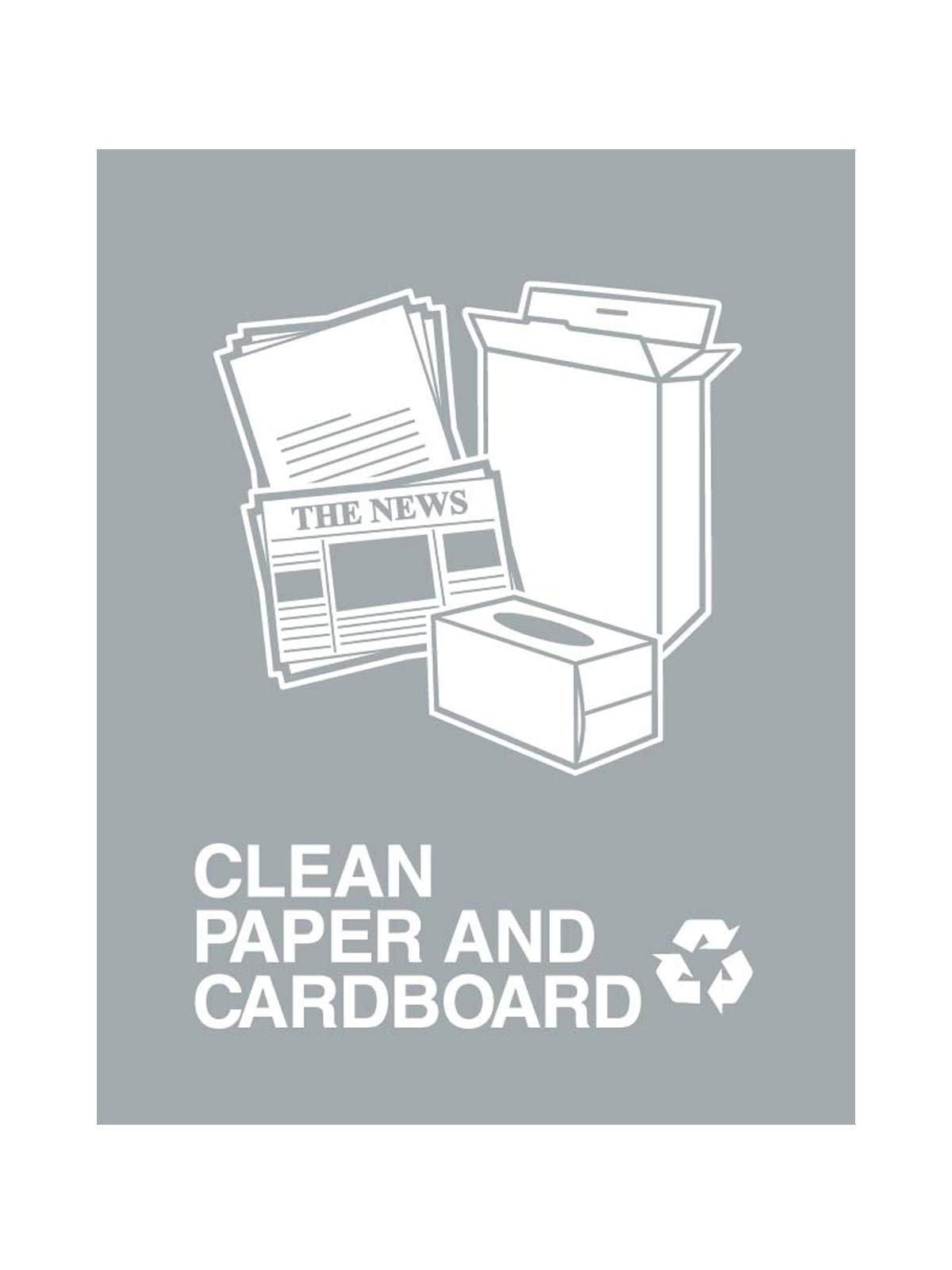Waste Management Pilot Program

The Mission College Sustainability Committee, in collaboration with Facilities Maintenance, has launched a pilot program to:
- Improve recycling and composting rates.
- Prevent contamination of recycled material.
- Reduce workload for custodial staff.
Waste Management Stations
We are setting up over thirty waste management stations around the Mission College campus. Each station includes can/bottle recycling, paper recycling, compost, and trash bins with improved signage. We have removed wastebaskets from nearby lecture classrooms; signs will direct users to the stations.


Food. Soiled pizza boxes and paper plates. Dirty cardboard.

Bottles with NO liquid - empty them in a sink or outside before recycling.
Coffee cups. Plastic. food containers, wrap, bags, and utensils. Candy wrappers. Masks and gloves.

Dry cardboard. Magazines and mail.
FAQ
Q: Where can I report issues/problems or request future station locations?
A: If you encounter any issues, or would like to suggest a location for a future waste
station, please contact [email protected].
Q: What’s new in this pilot program?
A: This pilot program better separates waste streams, keeping recyclables separate
from our newly expanded food waste collection stream. Plastic recycling is limited
to only plastic bottles.
Q: Where do these streams go?
A: Our hauler, Recology, collects bottles, cans, and paper to be recycled. Food waste
and organics are made into compost.
Q: Is all paper recyclable?
A: By and large, YES, as long as it’s clean and dry! Paper soiled by waste (ex: food,
drink) and tissues/towels should go into compost. A few paper types are not recyclable,
but the sorting center will exclude those later.
Q: What about plastics that aren’t marked with a number?
A: The only plastics we recycle currently are plastic bottles, and all plastic bottles
have numbers. All other plastics, especially bags and thin films, should be disposed
of in the trash, as they can damage sorting machinery.
Q: What are the legal obligations?
A: As of January 1, 2023, California’s SB 1383 requires that we work to reduce disposal
of food waste in landfills. See the webpage below for more information.
Q: Will pests be an issue?
A: This pilot program is focused on indoor waste collection stations, so additional
barriers against outdoor pests are not anticipated to be necessary. However, we will
monitor the pilot waste stations for signs of insect infestation. We anticipate that,
overall, aggregating waste collection outside of classrooms will make it easier to
stop pests.

